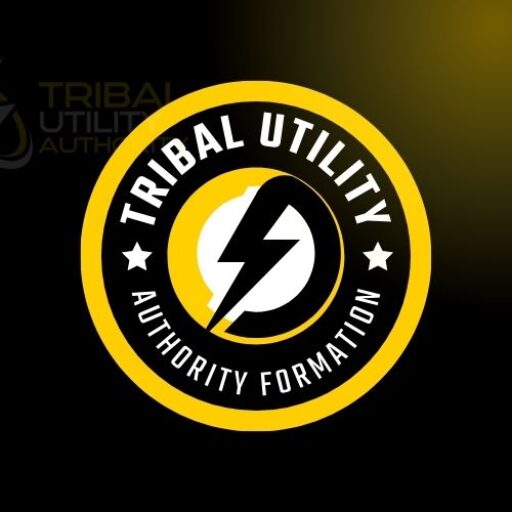Tribal Utility Authority Part III: Understanding Tribal Sovereignty and Utility Rights
Tribal Utility Authority | Powered By Red Power Energy
TUA Experts
+1 855-573-3769
Good >Better>Best Options
Understanding Tribal Sovereignty and Utility Rights
Tribal sovereignty forms the bedrock of all tribal utility operations, yet it remains one of the most commonly misunderstood aspects of tribal utility management. At its core, tribal sovereignty represents the inherent authority of Native American tribes to govern themselves, a right recognized through centuries of legal precedent and federal policy. For tribal utilities, this sovereignty translates into specific powers and responsibilities that shape every aspect of utility operations.
The concept of tribal sovereignty in utility management extends far beyond simple service delivery. It encompasses the right to regulate utilities, establish rates, enforce environmental standards, and manage natural resources within tribal territories. This authority derives from tribes’ status as sovereign nations, a relationship established through treaties and reinforced through numerous Supreme Court decisions. Understanding this foundation proves essential for anyone involved in tribal utility management.
When examining tribal utility rights, three fundamental sovereign powers emerge as particularly crucial: the power to tax, regulatory authority, and jurisdictional rights. The power to tax enables tribes to generate revenue through utility operations and establish rate structures that support system maintenance and expansion. Regulatory authority allows tribes to set and enforce standards for utility operations, often exceeding federal minimum requirements to better protect tribal resources and community health. Jurisdictional rights determine where and how tribal utilities can operate, including authority over rights-of-way and service territories.
The Supreme Court has played a pivotal role in defining these rights through various landmark decisions. The 1908 Winters Doctrine, emerging from Winters v. United States, established tribal rights to water resources necessary for reservation purposes. This decision continues to influence water utility operations today, providing the legal basis for tribal water rights claims and management decisions. Similarly, decisions regarding tribal authority over non-members within reservation boundaries shape how tribal utilities serve diverse customer bases.
Water rights hold particular significance in tribal utility operations. The reserved rights doctrine, established through Winters and subsequent cases, recognizes tribal claims to water resources based on the federal government’s reservation of lands for tribal use. These rights often predate state water rights systems and remain unaffected by state water law. For tribal water utilities, these rights provide crucial legal protection for water sources while creating complex management challenges when sharing resources with neighboring jurisdictions.
The relationship between tribal sovereignty and federal trust responsibility creates both opportunities and obligations for tribal utilities. While tribes maintain authority over utility operations, the federal government retains certain oversight responsibilities and obligations to protect tribal resources. This relationship provides access to federal technical assistance and funding while requiring compliance with federal environmental and safety standards. Successful tribal utilities learn to navigate this relationship effectively, maximizing benefits while maintaining operational independence.
Cross-jurisdictional issues frequently arise in tribal utility operations, particularly when service territories overlap with non-tribal lands or when utilities must coordinate with neighboring systems. These situations require careful attention to jurisdictional boundaries and authorities. Many tribal utilities develop intergovernmental agreements to address these challenges, establishing clear protocols for service delivery and system maintenance across jurisdictional lines.
The assertion of tribal authority in utility operations often faces challenges from state and local governments or private entities. Successful tribal utilities develop strong legal foundations for their operations, documenting their authority through tribal ordinances and maintaining clear records of their jurisdictional rights. This documentation proves invaluable when defending tribal interests in regulatory proceedings or legal disputes.
Environmental protection represents a key area where tribal sovereignty intersects with utility operations. Tribes often implement environmental standards that reflect traditional values and exceed federal requirements. The EPA’s “treatment as state” provisions recognize tribal authority to administer environmental programs, providing another avenue for exercising sovereign rights in utility management. This authority enables tribes to develop water quality standards, air quality programs, and other environmental protections tailored to tribal needs.
Rate-setting authority represents another crucial aspect of tribal utility sovereignty. Tribes possess the right to establish utility rates and fees independent of state utility commission oversight. This authority enables tribal utilities to develop rate structures that balance operational needs with community affordability concerns. Many tribal utilities use this authority to implement innovative rate designs that support both system sustainability and tribal economic development goals.
The exercise of tribal sovereignty in utility operations extends to workforce development and employment practices. Tribal utilities often implement Indian preference hiring policies and develop training programs specifically designed to build tribal member capacity in utility operations. These efforts support both operational effectiveness and broader tribal self-determination goals.
KEEP READING BELOW
WIDE RANGE OF TRIBAL UTILITY SERVICES
Do you need Tribal Solar Help ? Look no further!
Leading experts in Tribal Utility Authority formation, IPP development, and PPA negotiation. Transform your tribe's energy infrastructure with comprehensive solutions backed by decades of experience in Indian Country.
- Tribal Utility Authority Formation
- Independent Power Producer Development
- Power Purchase Agreement Negotiation
- Virtual Tribal Energy Office Implementation
- Energy Program Management




Infrastructure development decisions reflect another important application of tribal sovereignty. Tribes maintain authority over infrastructure siting, design, and construction within their territories. This authority enables tribal utilities to ensure that infrastructure development aligns with tribal land use plans and cultural preservation goals. However, this authority also carries responsibility for ensuring that infrastructure meets applicable safety and environmental standards.
The protection of cultural resources represents a critical consideration in tribal utility operations. Sovereign authority enables tribes to establish stronger protections for cultural sites and resources than might be required under federal law alone. Successful tribal utilities integrate these protections into their standard operating procedures, ensuring that maintenance and construction activities respect cultural resources.
Emergency management provides another context where tribal sovereignty shapes utility operations. Tribal utilities maintain authority to declare emergencies, implement response measures, and coordinate with federal agencies during disasters. This authority proves particularly important during natural disasters or system failures that require rapid response and resource deployment.
The evolution of tribal utility sovereignty continues as new challenges and opportunities emerge. Climate change adaptation, renewable energy development, and technological advancement create new contexts for exercising tribal authority. Successful tribal utilities maintain flexibility in their governance structures to address these emerging issues while preserving core sovereign rights.
The practical application of sovereignty in utility operations requires careful attention to documentation and process. Tribal utilities must maintain clear records of their authority, decisions, and interactions with other jurisdictions. This documentation supports both operational effectiveness and the defense of tribal rights when challenged.
Looking forward, tribal utility sovereignty faces both opportunities and challenges. Emerging technologies create new possibilities for exercising tribal authority in utility operations. However, changes in federal policy, environmental conditions, and regional development patterns may create new pressures on tribal utility rights. Understanding and effectively asserting sovereign rights will remain crucial for tribal utility success.
The exercise of tribal sovereignty in utility operations ultimately serves to support tribal self-determination and community development. By maintaining strong sovereign authority over utility operations, tribes ensure that essential services align with community needs and values while supporting broader tribal development goals. This alignment proves essential for long-term utility success and community well-being.
For tribal utility managers, understanding sovereignty’s practical implications helps inform daily operational decisions and long-term planning. This knowledge supports effective decision-making while ensuring that utility operations continue to serve tribal interests and protect tribal rights for future generations.
Experienced Tribal Solar Experts
WE USE THE LATEST TOOLS & TECHNOLOGY
We provide reliable and quality electrical services to customers in the area. We specialize in all aspects of residential and commercial electrical work, from new installations and upgrades to repairs and maintenance.
We are a full-service electrical contractor dedicated to providing quality electrical services to both residential and commercial customers. Our team of experienced electricians are highly trained and certified.
TRIBAL UTILITY AUTHORITY CONSULTING
Expert guidance in establishing and managing tribal utility authorities, helping Native American communities achieve energy sovereignty through strategic planning and implementation.
TRIBAL UTILITY PROGRAMS
Comprehensive support for developing and implementing sustainable tribal utility programs that enhance community self-reliance and economic development.
TRIBAL UTILITY AUTHORITY FORMATION
Complete assistance in establishing legally sound tribal utility authorities, including regulatory compliance, governance structure development, and operational framework creation.
TRIBAL UTILITY AUTHORITY OPERATIONS
Professional support for day-to-day utility management, including system maintenance, customer service, billing operations, and performance optimization.
TRIBAL UTILITY AUTHORITY TECHNOLOGY
State-of-the-art technological solutions for modern tribal utility operations, featuring advanced metering, smart grid capabilities, and integrated management systems.
TRIBAL UTILITY AUTHORITY WORKFORCE
Specialized workforce development programs focused on building local capacity through technical training, professional development, and ongoing operational support.
Are you in need of an Tribal Utility Authority Expert ?
Look no further! Our team is here to help.
REACH OUT AND CONNECT
Get a Complete Quote
Your bridge to meaningful communication and personalized assistance, we're here to listen and assist you
Latest Tribal Utility Authority Updates
NAVIGATING IDEAS AND INSPIRATION

Tribal Utility Authority Overview
A tribal utility authority is a specialized administrative entity established by a Native American tribe to manage and operate essential utility services within their tribal

Tribal Utility Authority Formation: Harnessing Tribal Energy Sovereignty
Tribal Utility Authority Formation: Harnessing Tribal Energy Sovereignty Welcome to TribalUtilityAuthority.com, the definitive resource on establishing and operating Tribal Utility Authorities (TUAs) to achieve energy




